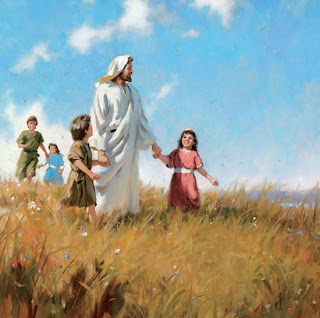C 20: The Preventive System and Salesian spirit
Under the guidance of Mary his teacher, Don Bosco lived with the boys of the first Oratory a spiritual and educational experience which he called the "Preventive System". For him this was a spontaneous expression of love inspired by the love of a God who provides in advance for all his creatures, is ever present at their side, and freely gives his life to save them.
Don Bosco passes this on to us as a way of living and of handing on the gospel message, and of working with and through the young for their salvation. it permeates our approach to God, our personal relationships and our manner of living in community through the exercise of a charity that knows how to make itself loved.
Many of us are familiar with the famous paint of Rembrandt reproducing the encounter of the Prodigal Son with his merciful father. Many of us did read the comment made by Henry Nouwen in his best seller some years ago. In the introduction to the text he described how he discovered in that picture so many meaningful details just “contemplating” it day after day.
The same happened during these days. Several times I have read, studied and reflected on our Constitutions in personal meditation or in community meetings. Nevertheless in these days, while “contemplating” some articles, I found out a kind of newness, freshness and richness that filled my heart with gratitude and joy.
We are rich, we are very rich. We are children of a great rich spiritual family. And like children of rich families, we run the risk of not appreciating enough our richness, the precious heritage that was laid down for us. We do not explore it any more, we are satisfied for what we have learnt, and we think we have reached the saturation proverbial for a conceited lecturer.
The title of Art 20 “The Preventive System and Salesian Spirit” matches together two fundamental topics that usually are developed in separated books. Here they become two parts of a same book interweaving each other.
I can trace back the time in which the Preventive System was presented to us - young Salesians - as a “method of education”. Following the short outlines laid down by Don Bosco - “The Preventive System in the education of the young” - we learned about the difference between repressive and preventive system, “in what the preventive system consists”, its application and advantages. It was an approach that helped us to revisit the previous periods of our education in Salesian environments and find out many good examples of its application in the style of life of our educators. By expanding a little into psychological and pedagogical areas of studies we presumed to be fully equipped for the task of our practical training in the communities. Wonderful juvenile enthusiasm!
Along the years the Congregation elaborated a new inside of the Preventive System to become gradually not only a “method of education” but “a spirituality”, “the” Salesian spirituality. Therefore the GC 25 (N 57) invited the communities to give greater emphasis to the “understanding and appreciation of the preventive system as the way to Salesian holiness”.
In the art. 20, the first Oratory of Don Bosco is seen as a “spiritual and educational experience”. The preventive system is referred to as “a spontaneous expression of love inspired by the love of God”. And so “it permeates our approach to God, our personal relationships and our manner of living in community”.














